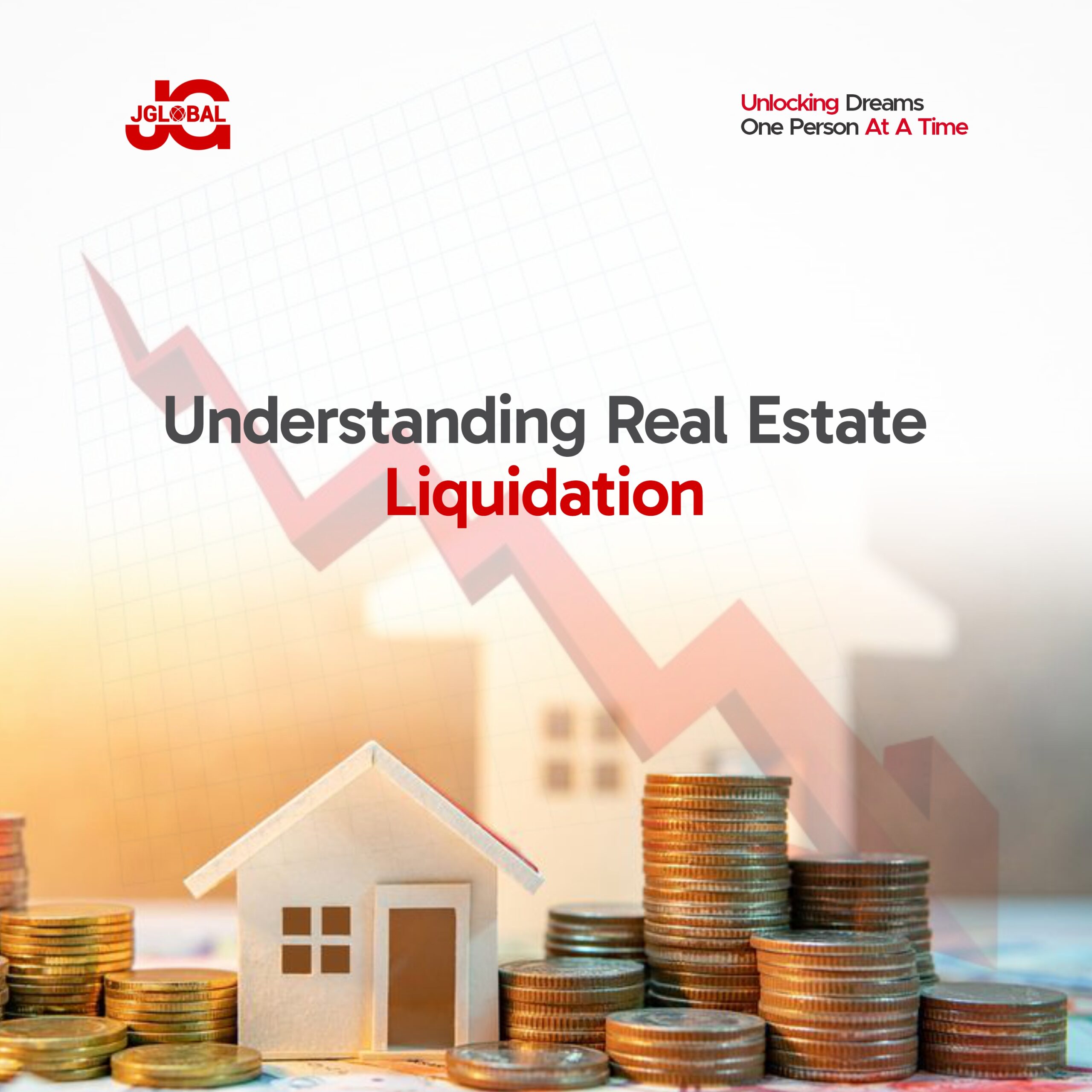UNDERSTANDING LIQUIDATION IN REAL ESTATE

INTRODUCTION
Many investors face financial difficulties due to unforeseen circumstances or poor investment decisions. Liquidation in real estate can be a challenging experience, especially when it’s as a result of bankruptcy. In this article, we will explore the concept of liquidation, its consequences, and provide practical tips on how to avoid bankruptcy.
WHAT IS LIQUIDATION IN REAL ESTATE?
Liquidation in real estate refers to the process of selling assets and converting it to cash on the open market. This can occur due to various reasons such as:
- Inability to pay debts.
- Foreclosure
- Financial distress
- Divorce
- Job relocation
- Major health issues
- Market conditions
- Court orders
- Bankruptcy
- Choosing the wrong investment option
WHAT ARE THE TYPES OF LIQUIDATION?
There are various types of Liquidation and they are as follows:
Voluntary Liquidation
This is when you’ve got a property, and you want to upgrade, diversify your portfolio, or retire. Then you decide to sell it to achieve your goals. You are in control, and it’s a planned decision.
For example: Mr. John wants to sell his condo to buy a bigger house for his growing family. This is an example of an upgrade.
Involuntary Liquidation
This type is tougher. It’s when someone sells their property due to circumstances beyond their control. Like Debts, bankruptcy, or court orders.
For example: Sarah falls behind on mortgage payments, and the bank forecloses on her home.
Orderly Liquidation
A planned, strategic sale of your properties to maximize returns.
For example: A company sells off their assets to focus on core business operations.
Partial Liquidation
This involves selling only a part of a property or portfolio so as to maximize returns.
For example: An investor sells a few rental properties to raise capital for a new venture.
Distressed Liquidation
This involves selling properties due to pressure, and often at prices below market price.
For example: A homeowner sells their property quickly due to financial hardship.
WHAT ARE THE CONSEQUENCES OF LIQUIDATION?
Liquidation can have severe consequences on investors, including:
- Financial loss: Selling assets at discounted prices.
- Damage to credit score: Impacting future investment opportunities.
- Emotional stress: Loss of assets and financial security.
CHALLENGES FACED BY INVESTORS WHEN LIQUIDATING A PROPERTY
Some challenges Investors face when Liquidating a property include:
- Finding Buyers: Finding genuine buyers who are willing to pay a fair price can be tough. You might end up waiting for months or even years to find the right buyer.
- Documentation and Legal Issues: Ensure you have all necessary papers, such as Certificate of Occupancy (C of O) and Registered Title Documents. Because legal disputes or controversies can scare off potential buyers.
- Valuation and Pricing: Determining the right price for your property can be complicated. Overpricing can deter buyers, while underpricing means losing out on potential profits.
- Time-Consuming Process: Selling a property requires time and effort. From marketing to inspection, negotiations, and paperwork, the process can be exhausting.
WHAT ARE THE STRATEGIES FOR MANAGING DEBTS?
- Create a budget: Make a realistic budget and stick to it, allocating enough money each month to pay off debt.
- Prioritize debts: Identify which debts have the highest interest rates or are most urgent, and focus on paying those off first.
- Avoid new debt: Don’t take on more debt while you’re trying to pay off what you already have.
- Consolidate debt: Combine multiple debts into one, usually with a single monthly payment. This can help you save money on interest and other charges, and may also improve your credit score.
- Renegotiate repayment: If you’re having trouble making payments, you can contact your lenders to see if you can renegotiate terms.
- Increase revenue: If you have a business, you can try to increase revenue to help manage debt. For example, you could offer discounts for early payments, sublet unused space, or move to a less expensive location.
WHAT ARE THE BEST PRACTICES FOR LIQUIDATION
- Seek professional guidance: Expert advice on asset valuation and sales.
- Transparency: Disclose all assets and debts.
- Prioritize creditors: Pay secured creditors first.
CONCLUSION
Liquidation in real estate can be a challenging experience, but with proper understanding and planning, you can avoid bankruptcy. By conducting thorough research, diversifying investments, and managing debt, you can mitigate risks and ensure financial stability.



